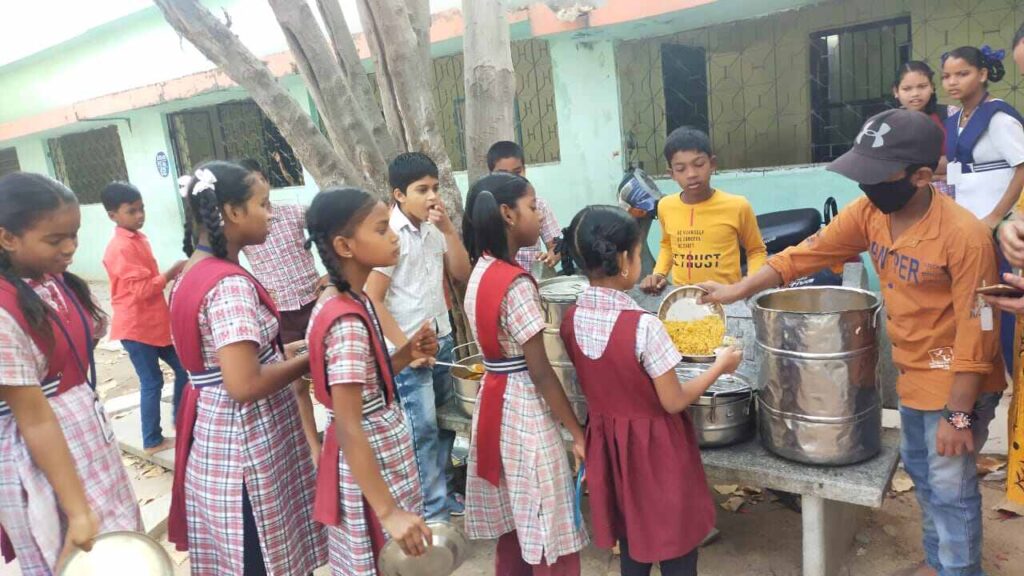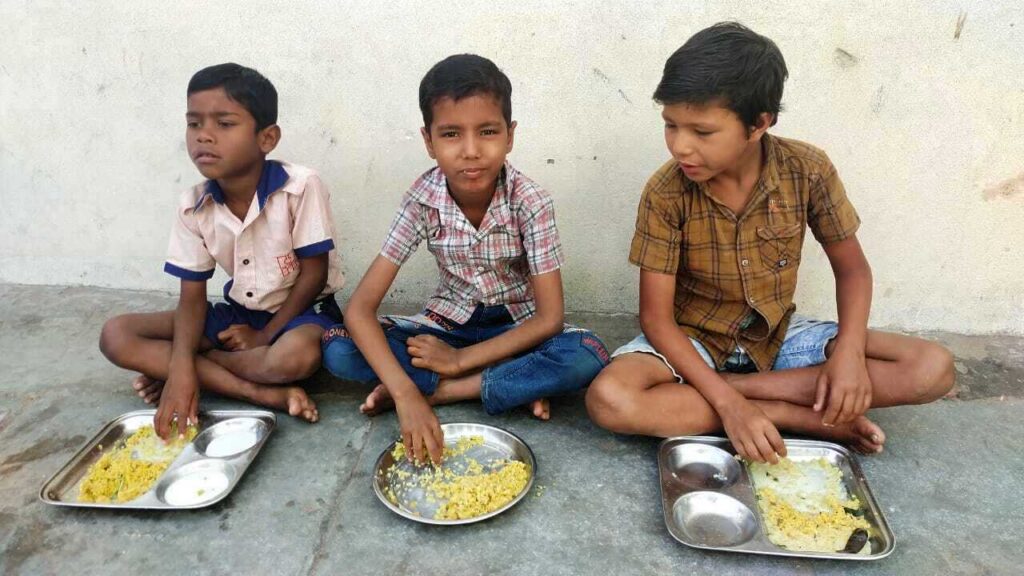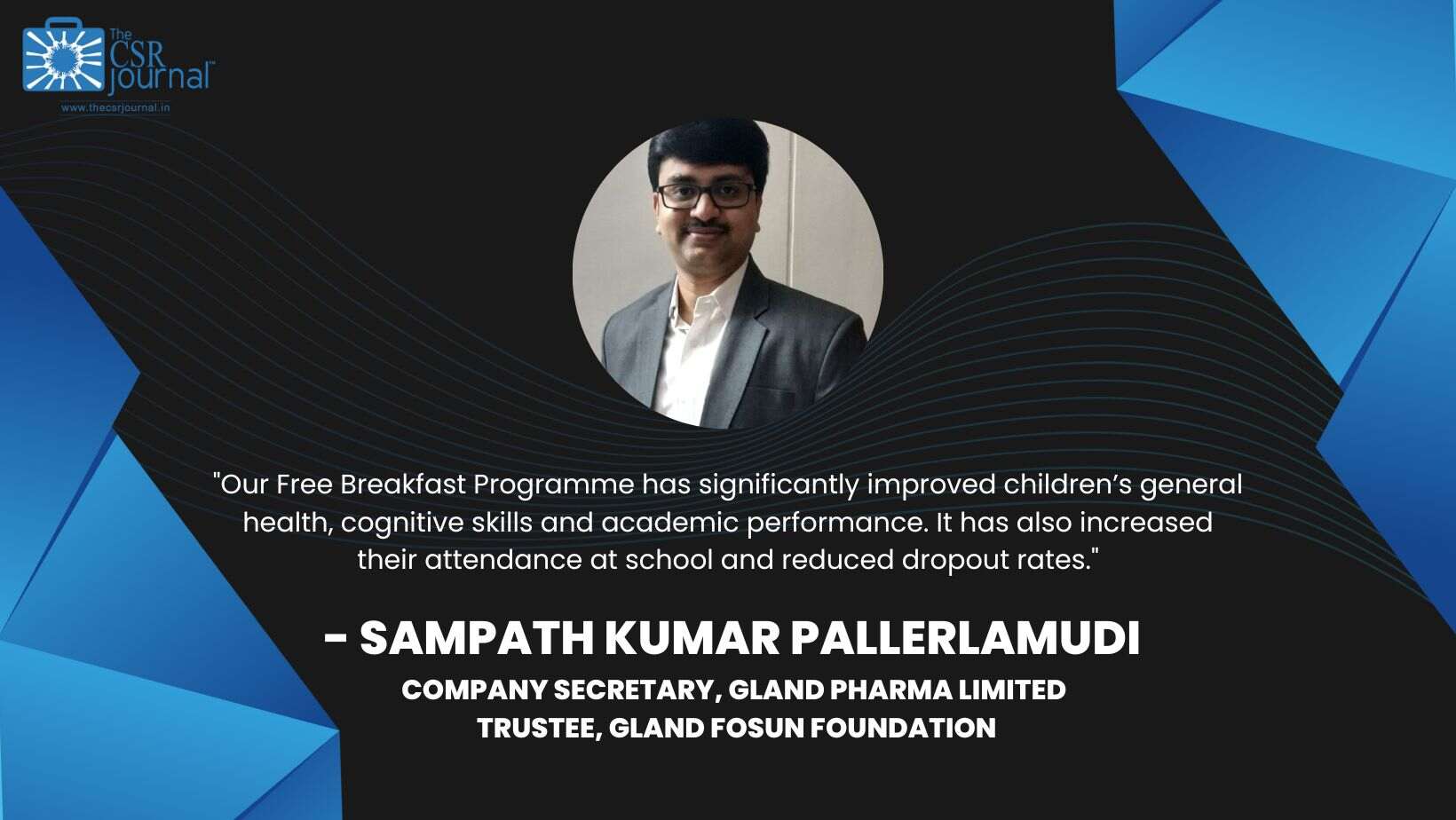Breakfast is undoubtedly the most important meal of the day. A plate of healthy breakfast provides a great start to the day. Studies have often linked eating breakfast to good health, including better memory and concentration, lower levels of bad cholesterol, lower risk of diabetes, heart disease, and obesity.
After a nutritious and filling breakfast in the morning, we feel energetic throughout the day. But what if the plate of breakfast is missing? What if we do not get to eat breakfast day after day? Skipping breakfast can lead to headaches, lower blood sugar, weakness and difficulty in concentration.
The impact is even worse on children. Kids who don’t eat breakfast, have shown lack of focus and exhaustion. They may also get cranky or restless during the day. This also negatively impacts their academic performance.
Gland Pharma Limited, a leading manufacturer of high-quality injectables, performs Corporate Social Responsibility through its public charitable trust, Gland-Fosun Foundation. The company’s ‘Free Breakfast Programme’ is providing free breakfast-cum-health support to underprivileged children studying in Government schools and lactating and expecting mothers in Anganwadi centres of Andhra Pradesh and Telangana.
Gland Pharma Limited and its CSR wing Gland-Fosun Foundation (A Public Charitable Trust of Gland Pharma Limited) was honoured at The CSR Journal Excellence Awards this year for their contribution in CSR initiatives in the ‘Health and Sanitation’ category.
In an exclusive interaction with The CSR Journal, Mr Sampath Kumar Pallerlamudi, Company Secretary, Gland Pharma Limited and Trustee, Gland Fosun Foundation talks about their ‘Free Breakfast Programme’ and how it is benefitting children. Following are excerpts from the conversation.

Please tell us about Gland Pharma’s Free breakfast Programme
This programme was started on 14th November 2019 (Chidlren’s Day). We began with about 7000 children and now we are serving more than 16,000 children from 83 government schools along with 350 beneficiaries of 10 Anganwadi centres in Hyderabad. Of these, 43 schools are in Hyderabad, 40 are in Vishakhapatnam. In these Anganwadi centres, 3-6 year-old pre-school children, pregnant and lactating mothers are our beneficiaries. We are providing free breakfast to all of them.
We provide funding support to Akshaya Patra Foundation, who is our implementing partners. They have huge community kitchens in Hyderabad and Vishakhapatnam. They have specialised vehicles to convey these meals in hot and hygienic condition to all the beneficiaries. They provide meals on time in the morning, which enables these children to have a good and filling breakfast at the beginning of their school routine.
Many students from government schools come from financially poor background. They are children of construction workers, migrant workers, daily labourers etc. Their parents usually go out of the house in search of work very early in the morning leaving the children hungry. So, these children do not get the motivation to come to school on an empty stomach. This breakfast program acts as an inducement to come to school and the Mid-day meal supports that. A filling and nutritious breakfast provides a healthy and great start to the day, which makes the children feel energised to go to school.

What kind of food is served for breakfast?
The children begin their day at school on a bright and happy note with a hot, nutritious and sumptuous breakfast prepared by our implementing partner, the Akshaya Patra Foundation. We endeavour to provide a mouth-watering variety of breakfast to the children: idli-sambar-chutney, upma-chutney-pickle, khichri-mixture, pongal-sambar, tomato rice-raitha, pulihora-chutney-mixture, bisibele baath, etc.
What was the inspiration to start this programme?
When we started visiting schools to support them for Mid-day meal, what we observed that many of the students do not get to eat breakfast. As a result, the children feel weak and low on energy in the morning. The first meal of the day is very important especially for children. So we thought it would be a good decision to provide their breakfast.

What kind of change have you observed in children due to this programme?
Our novel breakfast project has greatly improved the children’s general health, cognitive skills and academic performance. It has also significantly increased their attendance at school, and reduced school dropout rates appreciably. The strength of the government schools has increased. Hence, they’re now asking for infrastructure to accommodate the newly joined students. That’s the level of success this programme has witnessed. The academic performance of students has also improved, which shows the impact this programme has had on the children.
How many plates of breakfast are served every day?
Every day the total number of students we serve is 16,000 plus 500 depending upon their attendance.

What did you do during the Covid-19 lockdown when schools were operating virtually?
During the COVID lockdown in 2020 and 2021, we distributed ‘Happiness Boxes’ at these schools. The ‘Boxes’ contained several items that catered to the children’s nutritional, educational and hygiene needs (such as rice, wheat, pulses, sugar, oil, biscuits, stationery, soaps, toothbrush, toothpaste, etc.). When government schools in Telangana briefly reopened in early 2021, we distributed special ‘Sanitization Kits’ for the children’s safety. The Kits comprised non-invasive thermometers, sanitizer solution dispensers, face-masks, plastic water bottles, gloves and caps.
What else do you do to support government schools?
In our endeavour to improve government schools, we carry out extensive infrastructure development/renovation works, including additional classrooms, staff rooms, laboratories, dining halls, kitchens, stores, assembly stage, toilet blocks, drinking water facilities, compound walls, playgrounds etc.
We also sponsor ‘Vidya Volunteer’ teachers/non-teaching staff in schools that face a shortage of them, and provide teaching boards, chairs, dual-desks, dining tables and other essential furniture.
Also, to address systemic gaps that prevent underprivileged school children from pursuing experiential STEM learning, we have implemented a ‘Janyaa Lab-In-a-Box’ (JLIB) program in 11 government high schools, in association with an education-specialist NGO. The JLIB kit, with its 340 Science/Math experiments, provides hands-on learning that can be applied to the students’ lives and benefit their families/communities. It promotes their problem-solving and creative thinking, builds a strong foundation for STEM learning relevant for vocational pursuits, and makes them future-ready with demand-driven skills.
Ahana Bhattacharya can be reached at ahana@thecsrjournal.in

